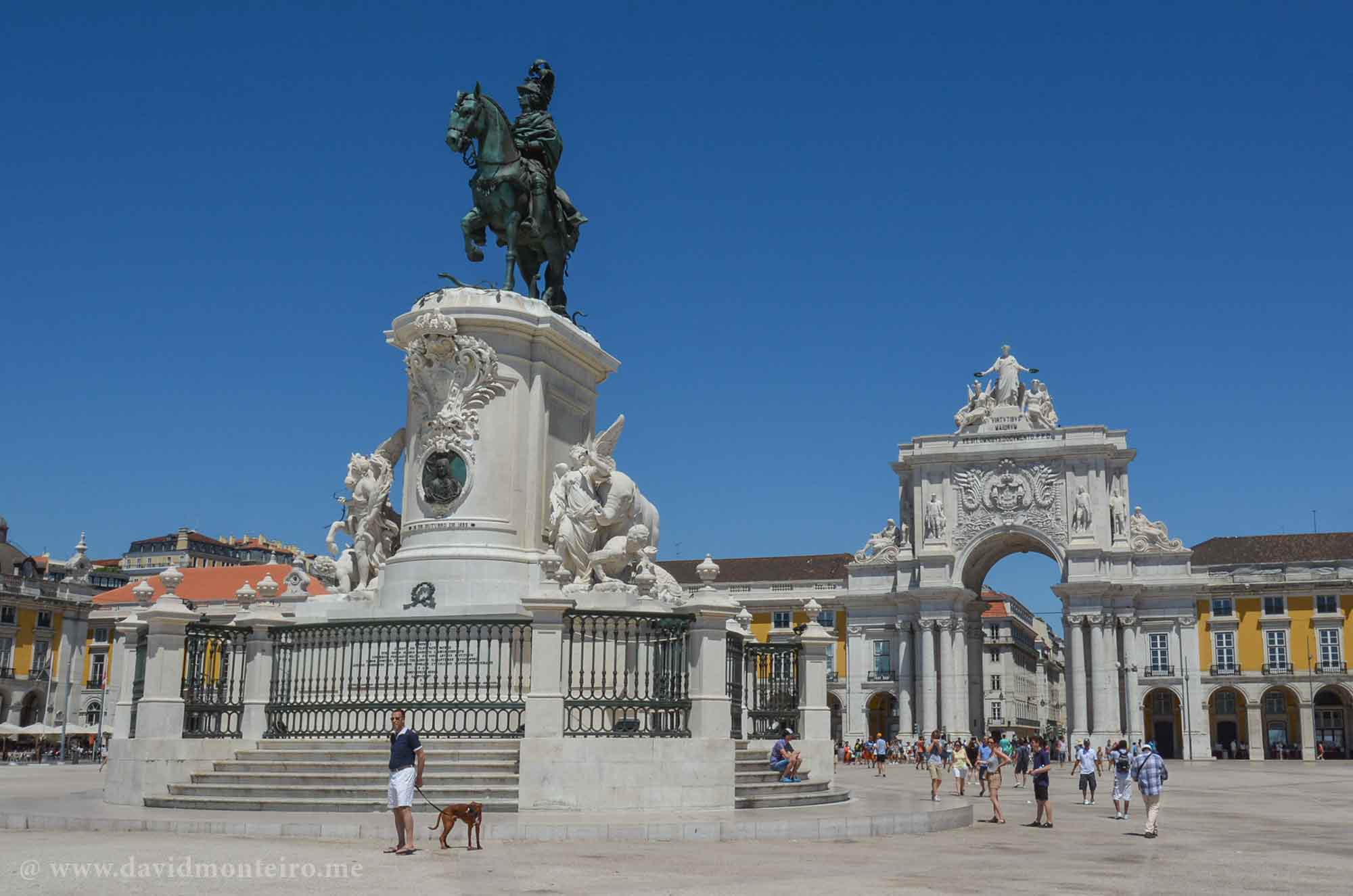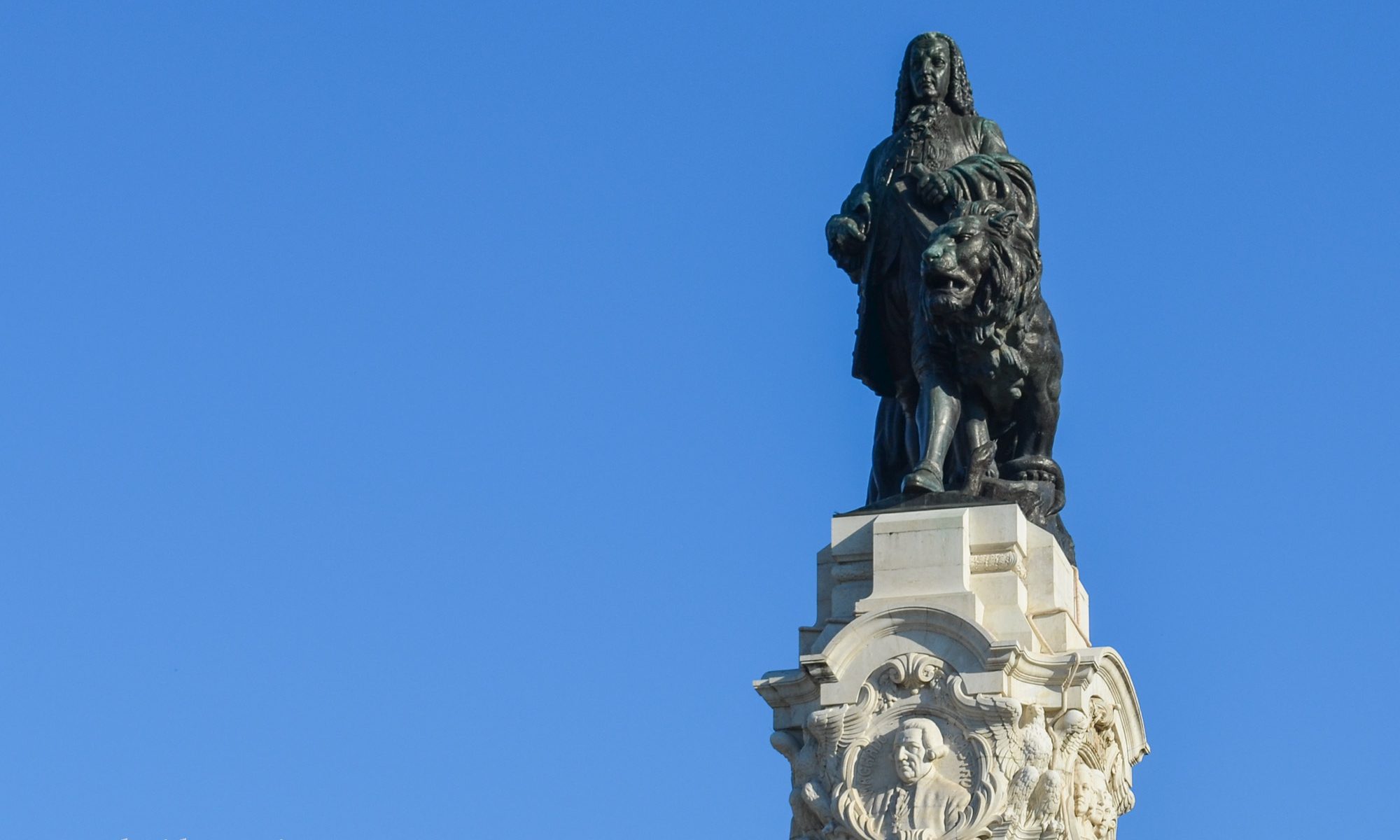Who was the Marquis of Pombal?
Was the Marquis of Pombal an iron-handed visionary or an Enlightenment despot?
Sebastião José de Carvalho e Melo, count of Oeiras and marquis of Pombal, one of the key players in Portugal’s history, remains a controversial figure.
What is certain is that he wielded relentless power over the country, granted directly by King D. José I, who held him in the highest esteem and regard.
As a dictator, the Marquis of Pombal dismantled the entrenched powers of the old aristocracy surrounding the king and eradicated the considerable influence of the Society of Jesus, the Jesuits.
Sebastião José also modernized universities and initiated measures to abolish slavery.
However, he also executed individuals through dubious trials, employing hanging and brutal methods.

How will we assess the Marquis of Pombal?
Even today, scholars debate his actions.
This article doesn’t serve as a historical treatise but rather as a simple chronicle of events to offer insight into Sebastião José de Carvalho e Melo, the Marquis of Pombal.
Put simply, there are two pivotal periods in Portugal’s history where the Marquis of Pombal held prominence:
- managing the aftermath of the Great Earthquake of 1755 in Lisbon and subsequently overseeing the city’s reconstruction,
- and establishing the world’s first demarcated wine region, the Douro Valley wine region.
However, his influence on the country’s governance extended much further.
He transformed education, disrupted the established power dynamics within the kingdom, and shaped Portugal’s foreign policy, notably impacting Brazil’s exports, among other interventions.
Timeline of the Marquis of Pombal’s Life
To gain insight into this character, I’ll enumerate several events I deem pivotal in his life:
- 1699: Sebastião José de Carvalho e Melo, later known as the Marquis of Pombal, is born.
- 1750: Appointed as Secretary of State for Internal Affairs by King Joseph I of Portugal.
- 1755: Great Lisbon Earthquake devastates the city; Pombal leads the reconstruction efforts and implements significant urban reforms.
- 1756: Assumes the position of Prime Minister of Portugal, consolidating power and implementing numerous reforms.
- 1759: Expels the Jesuits from Portugal and its colonies, seizing their assets and influence.
- 1760: Implements economic policies aimed at modernizing Portugal’s economy and reducing dependency on foreign powers.
- 1761: Reorganizes the educational system, establishing secular schools and promoting scientific education.
- 1777: Retires from political life after King Joseph I’s death and the accession of Queen Maria I.
- 1782: Dies in Pombal, Portugal, at the age of 82.
- The Marquis of Pombal’s life was characterized by significant political, social, and economic reforms, making him a central figure in Portuguese history.
Major achievements of the Marquis of Pombal
I’m enumerating only the Marquis of Pombal’s most significant achievements:
Reconstruction efforts and urban reforms following the Great Lisbon Earthquake of 1755.
- Consolidation of power as Prime Minister of Portugal, implementing significant administrative and economic reforms.
- Expulsion of the Jesuits from Portugal and its colonies, leading to the seizure of their assets and influence.
- Modernization of Portugal’s economy through strategic economic policies.
- Reorganization of the educational system, promoting secular education and scientific knowledge.
- Initiatives to promote Portugal’s independence from foreign powers and enhance national sovereignty.
- Advocacy for social reforms and initiatives aimed at improving the welfare of the population.
These achievements established the Marquis of Pombal as a central figure in shaping Portugal’s history and modernization efforts.
Executions, hostilities, and injustices
Throughout this process, he left behind a record of executions, hostilities, and injustices, some of which are outlined below:
- Following the uprising in Porto in 1757, authorities hanged, dismembered bodies, and sent people into exile.
- The Távora family, accused of attacking the king’s life, faced execution, with their arms and legs broken with a hammer before being burned alive, among other brutal killings.
- Numerous individuals were hanged after swift trials for theft of buildings damaged by the Great Earthquake.
- Etc, etc.

How and when did the Marquis of Pombal acquire such immense power?
Some historians concur that Sebastião José truly became the relentless ruler he was during the management of the consequences of the Great Earthquake of 1755.
After the earthquake, King D. José I erected an impressive tent on the outskirts of Lisbon and relocated the entire royal family there, opting not to reside in a brick house again.
Sebastião José remained in Lisbon, overseeing the city’s reconstruction and enforcing punishment for those who did not adhere to his directives. It was from this point onwards that his power began to soar.
In 1759, he was granted the title of Count of Oeiras, and in 1769, he was elevated to the position of Marquis of Pombal.
The Marquis’ decline
In 1777, D. Maria I, the daughter of King D. José I, ascended to the throne as the acclaimed queen of Portugal upon her father’s death.
With King D. José I’s passing, the golden era of the Marquis of Pombal came to an end, marking the beginning of his decline.
The Marquis was promptly banished to his estates, and his trial commenced.
Among the numerous individuals imprisoned during the Marquis of Pombal’s reign and subsequently released was the bishop of Coimbra, who had been incarcerated for approximately ten years for preaching against French humanist teachings.
Despite the charges brought against him, it was not possible to convict the Marquis of Pombal because he possessed written evidence indicating that he had acted on behalf of the king.
In 1782, Sebastião José de Carvalho e Melo passed away on his estate in Pombal.
Can we arrive to a conclusion?
Was he a dictator, a despot, a tyrant?
Undoubtedly controversial.
With his rule, Portugal transitioned from being viewed as a backward and obscure nation to fully embracing the Enlightenment, albeit at the expense of numerous injustices that enriched both the country and himself.
Dictator?
Certainly.
How else should we assess him?
I’m interested in your perspective.
Have a nice day,
David Monteiro
Note: The tours where I talk about the Marquis of Pombal’s life:
- Day Tours: Van and walk, Van tour, Walking tour
- Multi-Day Tours: Douro Valley Tour – from Lisbon and Douro Valley Tour – from Porto

